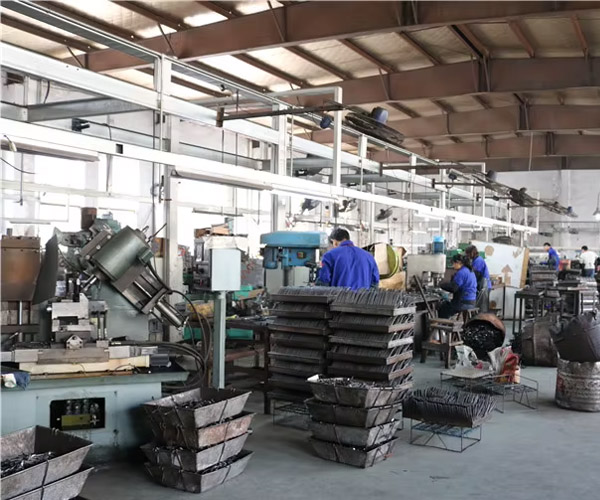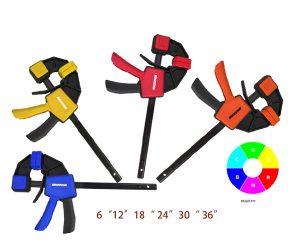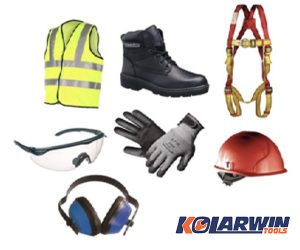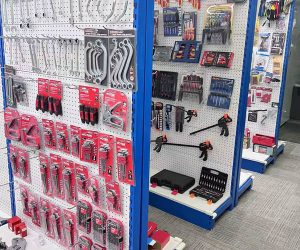When it comes to tackling any task, whether it’s a simple home repair or a complex woodworking project, having the right hand tools is essential. This article will explore the top hand tool manufacturers that can provide high-quality, reliable products for every job. Whether you’re a DIY enthusiast or a professional tradesperson, knowing who the best manufacturers are can make all the difference in achieving quality results. Let’s dive into the world of hand tools, and understand what makes these manufacturers stand out.
1. Why Are Hand Tools Essential for Everyday Tasks?
You may be asking yourself, “Why are hand tools such a critical part of our daily lives?” The answer is simple: hand tools are the backbone of almost every practical task we perform. Whether it’s fixing a leaky faucet, assembling furniture, or repairing a car, hand tools are essential for performing these jobs accurately and efficiently.
But here’s the kicker: without proper hand tools, even the simplest task can become frustrating and time-consuming. The right tool can save you time, reduce the risk of mistakes, and help you achieve professional-level results. For example, when it comes to woodworking, a well-crafted saw can make precise cuts, while a hammer with a comfortable grip can make driving nails easier and more effective.
Beyond just home repairs, industries such as construction, automotive, and manufacturing rely heavily on hand tools. High-quality hand tools improve productivity, ensure safety, and help workers complete tasks with less strain on the body. The ergonomic design of modern hand tools ensures that people of all skill levels can use them comfortably, reducing fatigue and making the work more efficient.
The main takeaway here is that investing in quality hand tools is not just about convenience—it’s about improving the quality of your work and reducing the chances of errors that can be costly in the long run.
| Task Type | Example Tool | Benefit of Using Quality Tools |
|---|---|---|
| Home repairs | Screwdriver | Faster assembly, reduced errors |
| Woodworking | Handsaw | Clean cuts, better precision |
| Automotive repairs | Wrench | Better grip, faster repairs |
2. What Makes a Hand Tool Manufacturer Stand Out?
You might be wondering, “What sets the best hand tool manufacturers apart from the rest?” Let’s dig into that. A top manufacturer isn’t just about producing a wide range of tools; it’s about crafting tools that perform consistently well, even under tough conditions. One key aspect that makes a hand tool manufacturer stand out is their commitment to quality control. This involves sourcing high-grade materials, implementing advanced manufacturing processes, and conducting rigorous testing to ensure each tool’s performance.
Ready for the good part? One example of a manufacturer that stands out in the industry is Stanley. Known for their attention to detail and quality craftsmanship, Stanley tools are renowned for their reliability and long-lasting performance. Their hand tools are built to withstand heavy use and are designed to meet the needs of both professionals and DIYers alike.
Another factor that sets top manufacturers apart is innovation. Brands like DeWalt and Milwaukee are constantly innovating, introducing new technologies and materials that enhance the functionality of their tools. Whether it’s a hammer with an ergonomic handle or a wrench with a built-in ratchet, innovation in design helps users work smarter, not harder.
The best manufacturers also offer excellent customer service and support. Whether it’s through warranties, repair services, or helpful customer support teams, top manufacturers ensure that their customers feel valued and supported long after the initial purchase.
| Manufacturer | Focus Area | Key Advantage |
|---|---|---|
| Stanley | General Hand Tools | Durability, wide range |
| DeWalt | Power Tools & Hand Tools | Innovation in design |
| Milwaukee | Industrial Tools | High-tech enhancements |
3. How Do You Identify the Best Hand Tool Manufacturers?
So, how do you go about identifying the best hand tool manufacturers? It’s not always as simple as picking the first name that pops up on Google. One of the first things you should look for is a manufacturer with a proven track record. How long have they been in business? Do they have positive customer reviews and testimonials? A reputable manufacturer will have years of experience and a history of delivering quality tools.
This is where it gets interesting: certifications and industry standards play a crucial role in ensuring product quality. For example, ISO certification or compliance with industry-specific standards like ANSI (American National Standards Institute) indicates that the manufacturer follows rigorous quality control procedures. Tools that meet these standards are more likely to perform reliably and safely.
Furthermore, don’t forget to consider the range of tools a manufacturer offers. A company that provides a variety of hand tools for different tasks—whether it’s woodworking, automotive repair, or general home improvement—demonstrates versatility and expertise in multiple areas. Additionally, evaluating the materials used in manufacturing can also be a great indicator of quality. High-quality steel or rust-resistant coatings, for example, ensure longevity and dependability.
The most important takeaway? Do your research. Look for reviews, industry certifications, and product warranties to help you identify the top manufacturers that align with your needs.
| Manufacturer | Years in Business | Industry Certifications |
|---|---|---|
| Stanley | 170+ years | ISO 9001 |
| DeWalt | 90+ years | ANSI, UL Certified |
| Milwaukee | 90+ years | ISO 9001, UL Certified |
4. What Are the Types of Hand Tools Manufactured?
Hand tools come in a wide variety of types, and each has its specific purpose. You might be asking, “What are the most common types of hand tools I should be aware of?” Well, there are several key categories, each designed to meet different needs.
For starters, basic hand tools include the likes of screwdrivers, hammers, pliers, and wrenches. These tools are essential in almost every toolbox and are used for a wide variety of everyday tasks. But wait, there’s more—specialized hand tools are designed for more specific purposes. For instance, woodworkers might use chisels, planes, and clamps to shape and finish wood, while automotive professionals may need torque wrenches, socket sets, and pry bars to fix or replace car parts.
Then, there are multi-tools, which have gained popularity in recent years. These handy devices combine several functions into one, making them incredibly convenient for both DIYers and professionals. For example, a multi-tool may feature a saw, screwdriver, and knife all in one compact unit, perfect for small repairs and outdoor activities.
The variety of hand tools available means that whether you’re a hobbyist or a professional tradesperson, there’s a tool suited to virtually every need.
| Tool Category | Common Tools | Purpose |
|---|---|---|
| Basic Tools | Hammer, Screwdriver | Everyday repairs and assembly |
| Specialized Tools | Chisels, Planes | Woodworking and fine-tuning |
| Multi-Tools | Swiss Army Knife, Leatherman | Convenience and portability |
5. How Do Hand Tool Manufacturers Ensure Product Durability?
Now, you’re probably wondering, “How do manufacturers ensure their hand tools are durable?” The short answer: they use high-quality materials and advanced manufacturing techniques. Durability is one of the key factors to consider when purchasing hand tools because tools that wear out quickly lead to increased costs and wasted time.
But here’s the kicker: the material used to make a tool plays a huge role in its durability. For example, stainless steel and high-carbon steel are commonly used for tools because they resist corrosion, maintain sharpness, and stand up to heavy use. Furthermore, manufacturers often apply coatings, such as chrome or nickel plating, to improve rust resistance and prolong the tool’s life.
Another important factor in durability is the construction process itself. Many of the top manufacturers use forging, which involves shaping metal using heat and pressure, creating stronger and more resilient tools. Additionally, high-end hand tools often undergo rigorous testing to ensure they can withstand heavy use in real-world conditions.
So, when choosing hand tools, always look for manufacturers that prioritize durability. These tools may cost more upfront, but their longevity makes them a wise investment in the long run.
| Tool Material | Benefits | Common Uses |
|---|---|---|
| Stainless Steel | Rust-resistant, strong | Hammers, Wrenches, Screwdrivers |
| High-carbon Steel | Durability, sharpness | Saws, Blades, Knives |
| Chrome Plating | Scratch-resistant | General hand tools |
6. Why Should You Choose an OEM Manufacturer for Hand Tools?
You might be thinking, “Why should I opt for an OEM manufacturer when there are so many options available?” Well, choosing an OEM (Original Equipment Manufacturer) can bring several advantages, especially if you’re looking for custom-made tools or specific product requirements. OEM manufacturers can offer tailored solutions that perfectly fit your needs, whether it’s branding, custom packaging, or specific design adjustments.
Ready for the good part? With OEM manufacturers, you have the flexibility to design tools that align with your brand’s identity and functional requirements. For example, if you’re selling tools under your own brand, you can choose to add logos, change colors, or modify tool handles to make them stand out in the market. This is a major advantage over standard mass-market products, which are typically not customizable.
Furthermore, OEM manufacturers often provide high-quality products at competitive prices, particularly when you order in bulk. By cutting out middlemen, you can streamline your supply chain, reduce costs, and receive personalized service directly from the manufacturer. This can also ensure faster turnaround times and better product consistency.
While working with OEMs offers several benefits, it’s important to choose a reputable manufacturer. Look for established companies with a track record of producing high-quality, durable products, and ensure they meet your industry’s standards and certifications.
| OEM Manufacturer | Customization Options | Benefit |
|---|---|---|
| Stanley | Logo, Color, Design | Custom products, cost-effective |
| DeWalt | Handle, Size | Tailored solutions, fast delivery |
| Milwaukee | Packaging, Labeling | Direct communication, bulk pricing |
7. How Are Hand Tools Designed for Comfort and Safety?
Comfort and safety are two critical factors when designing hand tools. But here’s the kicker—while functionality is obviously important, how a tool feels in your hand can directly affect how efficiently you work. A poorly designed handle or an uncomfortable grip can cause strain and make the job harder than it needs to be.
Let’s dive deeper: top manufacturers are constantly improving the ergonomics of their hand tools. For example, tools with cushioned, non-slip handles provide a better grip, reducing hand fatigue during extended use. A good handle not only improves comfort but also minimizes the risk of accidents. Manufacturers often incorporate soft, contoured grips into their tools to make them easier to hold, reducing stress on your hands and wrists.
Safety features, on the other hand, are often built into the design itself. Some manufacturers design tools with safety mechanisms such as automatic locking systems, insulated handles, and protective covers to reduce the risk of injury. The addition of anti-vibration features in tools like power drills also reduces the impact on your hands and joints, making them safer to use over long periods.
So, whether you’re looking for a wrench, hammer, or screwdriver, always choose tools that are designed with comfort and safety in mind. It may cost a little more upfront, but the benefits—reduced strain, better control, and fewer accidents—make it worth the investment.
| Tool Feature | Benefit | Example Tool |
|---|---|---|
| Ergonomic Handle | Reduces hand strain | Hammers, Screwdrivers |
| Non-slip Grip | Improves control, safety | Pliers, Wrenches |
| Anti-vibration | Protects joints, reduces fatigue | Power drills, Sanders |
8. What Innovations Are Hand Tool Manufacturers Focusing On?
The hand tool industry is not static—it’s evolving constantly, with manufacturers focusing on innovations that improve functionality, safety, and convenience. But wait, there’s more—innovation isn’t just about creating new tools; it’s about improving existing ones with new materials, technologies, and designs.
One area where innovation is making waves is in the use of smart tools. These tools integrate technology to enhance their capabilities, making them more efficient and user-friendly. For example, there are now Bluetooth-enabled torque wrenches that provide real-time feedback on tightness, allowing for more accurate and consistent work. These smart tools can even sync with mobile apps, giving you detailed performance data and recommendations.
Another area where hand tool manufacturers are innovating is sustainability. As environmental concerns become more prominent, manufacturers are looking for ways to make their tools eco-friendly. Some companies are experimenting with biodegradable materials and recyclable components in their tools. Furthermore, manufacturers are focusing on reducing energy consumption during production and ensuring that the tools themselves are more durable, thus reducing waste.
So, whether it’s integrating smart technology or developing more sustainable manufacturing practices, hand tool manufacturers are pushing boundaries to improve the tools you use every day.
| Innovation Type | Example | Benefit |
|---|---|---|
| Smart Tools | Bluetooth Torque Wrench | Real-time feedback, accuracy |
| Sustainable Tools | Biodegradable Materials | Reduced environmental impact |
| Energy-efficient Production | Low-energy Manufacturing | Lower carbon footprint |
9. How Can You Customize Hand Tools for Your Business?
You might be thinking, “I want to add my branding to the tools I sell. Can hand tools be customized?” The short answer is yes! Customizing hand tools is a great way to promote your brand and ensure that your products stand out in a crowded market. And this isn’t just about adding a logo—it’s about making the tool uniquely yours, both in terms of appearance and functionality.
Here’s where it gets interesting: hand tool manufacturers offer a wide range of customization options, from logo printing and color selection to handle modifications and custom packaging. If you’re selling hand tools under your own brand, customizing the tool’s handle for better ergonomics or selecting a specific color that aligns with your brand’s identity can help create a stronger market presence.
Another way to customize hand tools is by adjusting their size or functionality to meet the specific needs of your target audience. For example, you could order a batch of screwdrivers with extra-long handles for professionals who need tools for tight spaces. Customizing tools allows you to cater to niche markets and provide exactly what your customers need.
So, if you’re looking to make your mark in the hand tool industry, consider working with a manufacturer that offers extensive customization options. It’s a great way to ensure your products are tailored to your needs while setting yourself apart from the competition.
| Customization Option | Examples | Benefit |
|---|---|---|
| Logo Printing | Tool handles, packaging | Brand recognition, visibility |
| Color Selection | Hammer grips, screwdrivers | Market differentiation |
| Tool Modifications | Extended handle lengths | Tailored to customer needs |
10. What Are the Top Hand Tool Manufacturers in the USA?
When it comes to hand tool manufacturers, the USA is home to some of the most trusted brands in the industry. But what makes these manufacturers stand out from the competition? Let’s take a closer look at some of the top players in the US hand tool market.
Stanley is one of the most well-known names in the industry. With over 170 years of experience, Stanley is known for its durable and reliable hand tools. They produce a wide range of products, from basic hand tools like screwdrivers and hammers to more specialized items like tape measures and utility knives. Stanley’s commitment to quality and customer satisfaction has earned them a loyal following across both DIY enthusiasts and professional tradespeople.
DeWalt is another major brand that consistently ranks among the top manufacturers in the US. Known for its power tools and hand tools, DeWalt has a reputation for providing high-quality, heavy-duty tools that can withstand the toughest work environments. Their tools are engineered for professionals, making them a go-to choice for construction workers and contractors.
Milwaukee is also a top contender in the hand tool market. Specializing in industrial-grade tools, Milwaukee offers everything from hand tools to power tools and accessories. Known for their innovation and high-tech enhancements, Milwaukee tools are built to handle the most demanding jobs.
| Manufacturer | Years in Business | Popular Products | Key Strengths |
|---|---|---|---|
| Stanley | 170+ years | Screwdrivers, Hammers | Durability, wide product range |
| DeWalt | 90+ years | Drills, Wrenches | Innovation, heavy-duty tools |
| Milwaukee | 90+ years | Power Tools, Hand Tools | High-tech enhancements, reliability |
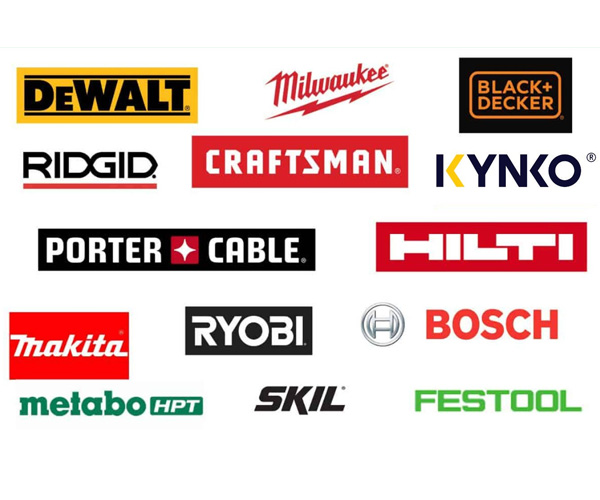
11. How Do Hand Tool Manufacturers Meet International Standards?
When purchasing hand tools, it’s important to choose products that meet international quality standards. But why is this so important? Manufacturers that comply with industry standards ensure their products meet safety, durability, and performance benchmarks that make them suitable for use across various industries. This gives you confidence that the tools you’re purchasing are of the highest quality.
Let’s take a look at how top manufacturers meet international standards. Many manufacturers undergo rigorous testing procedures to comply with standards such as ISO (International Organization for Standardization), which sets the framework for quality management systems in the manufacturing process. Additionally, manufacturers often meet safety standards set by organizations like ANSI (American National Standards Institute) and UL (Underwriters Laboratories), which help ensure that tools meet safety requirements.
In addition to quality standards, environmental considerations also play a role. Manufacturers that adhere to global environmental standards, such as ISO 14001, ensure that their production processes have minimal environmental impact, including reducing waste, emissions, and energy consumption.
By choosing tools from manufacturers who follow these international standards, you’re not just ensuring the quality and safety of your tools—you’re also supporting responsible manufacturing practices.
| Standard | Description | Industry Impact |
|---|---|---|
| ISO 9001 | Quality management standards | Ensures consistent product quality |
| ANSI | Safety standards | Protects users from injuries |
| UL | Safety certification for electrical products | Ensures safe operation |
12. What Should You Consider When Choosing a Hand Tool Supplier?
When looking for a hand tool supplier, there are a number of factors to consider. But here’s the deal—choosing the right supplier isn’t just about price. Sure, cost is an important factor, but quality, reliability, and customer service are just as critical.
For starters, you’ll want to evaluate the supplier’s reputation. Look for customer reviews and testimonials to get an idea of how satisfied other buyers have been. This will help you gauge the reliability of their products and services. You might also want to inquire about their delivery times, product availability, and warranty policies.
Additionally, consider the range of products they offer. A good supplier should offer a wide selection of hand tools to meet all of your needs, whether you’re looking for general-purpose tools or something more specialized. It’s also important to evaluate the supplier’s pricing structure and whether they offer bulk discounts for large orders.
Lastly, customer service is key. A supplier that provides responsive, helpful support can make a huge difference, especially if you encounter any issues with your order. Be sure to ask about their return policies, support channels, and if they offer assistance with custom orders.
| Factor | Key Considerations | Example |
|---|---|---|
| Reputation | Customer reviews, brand trust | Stanley, DeWalt, Milwaukee |
| Product Range | Variety of tools available | General tools, specialized |
| Customer Service | Response time, order support | Warranty, return policy |
13. How Do Hand Tool Manufacturers Meet International Standards?
When purchasing hand tools, it’s important to choose products that meet international quality standards. But why is this so important? Manufacturers that comply with industry standards ensure their products meet safety, durability, and performance benchmarks that make them suitable for use across various industries. This gives you confidence that the tools you’re purchasing are of the highest quality.
Let’s take a look at how top manufacturers meet international standards. Many manufacturers undergo rigorous testing procedures to comply with standards such as ISO (International Organization for Standardization), which sets the framework for quality management systems in the manufacturing process. Additionally, manufacturers often meet safety standards set by organizations like ANSI (American National Standards Institute) and UL (Underwriters Laboratories), which help ensure that tools meet safety requirements.
In addition to quality standards, environmental considerations also play a role. Manufacturers that adhere to global environmental standards, such as ISO 14001, ensure that their production processes have minimal environmental impact, including reducing waste, emissions, and energy consumption.
By choosing tools from manufacturers who follow these international standards, you’re not just ensuring the quality and safety of your tools—you’re also supporting responsible manufacturing practices.
| Standard | Description | Industry Impact |
|---|---|---|
| ISO 9001 | Quality management standards | Ensures consistent product quality |
| ANSI | Safety standards | Protects users from injuries |
| UL | Safety certification for electrical products | Ensures safe operation |
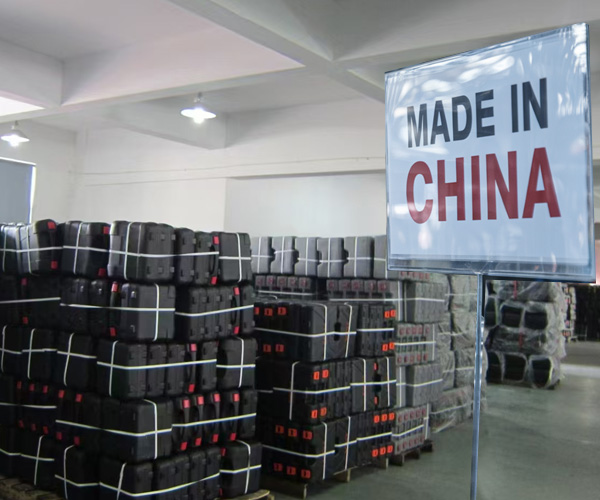
14. What Are the Future Trends in Hand Tool Manufacturing?
The hand tool industry isn’t slowing down—it’s evolving with new trends shaping how tools are designed, manufactured, and used. So, what can we expect in the future? One of the most exciting developments is the integration of smart technology into hand tools. Manufacturers are increasingly adding sensors, Bluetooth connectivity, and even voice commands to their tools to make them more user-friendly and efficient.
Another trend that’s gaining momentum is the shift towards eco-friendly and sustainable manufacturing practices. With growing concerns about the environment, more and more tool manufacturers are focusing on reducing waste, using recycled materials, and designing tools that are built to last. This means fewer tools end up in landfills, and consumers are choosing products that align with their environmental values.
Also, the rise of automation in tool manufacturing is improving efficiency and precision. With robots and AI playing a larger role in the production process, tools are being crafted with more precision, consistency, and speed than ever before.
The future of hand tools looks bright, and staying informed about these trends will help you stay ahead of the curve.
| Trend | Example | Impact |
|---|---|---|
| Smart Tools | Bluetooth wrenches | Enhanced accuracy and control |
| Sustainability | Recycled materials | Lower environmental impact |
| Automation | AI-driven production | Faster, more precise manufacturing |
FAQ Section
Q1: What is a hand tool manufacturer?
A hand tool manufacturer is a company that designs, produces, and supplies tools used for manual work, such as hammers, wrenches, and screwdrivers.
Q2: How does a hand tool manufacturer ensure product quality?
Hand tool manufacturers ensure product quality by using high-grade materials, implementing rigorous testing, and following industry standards throughout the production process.
Q3: Why should I consider an OEM hand tool manufacturer?
OEM manufacturers offer customized solutions, allowing you to get tailored products and potentially reduce costs when buying in bulk.
Q4: What types of hand tools do manufacturers produce?
Manufacturers produce a wide range of hand tools, including basic tools like screwdrivers and hammers, as well as specialized tools for woodworking, automotive repair, and construction.
Q5: How do I choose the right hand tool manufacturer for my business?
Consider factors such as product quality, reputation, certifications, customer service, and the ability to meet your specific needs before selecting a manufacturer.
Looking for high-quality hand tools for your business? As one of the leading hand tool manufacturers in China, we provide durable and reliable tools tailored to meet your needs. Whether you’re a wholesaler, distributor, or retailer, we offer customizable solutions to help your business thrive. Get in touch with us today to explore our wide range of products and see how we can support your tool requirements. Don’t wait—let’s build something great together!

